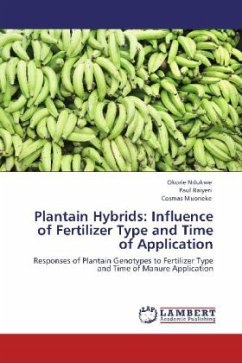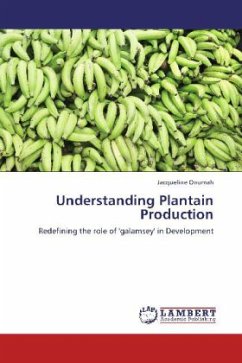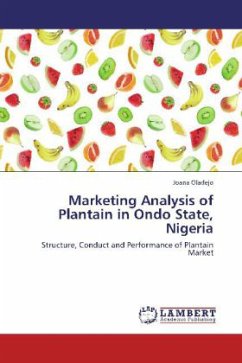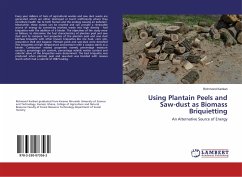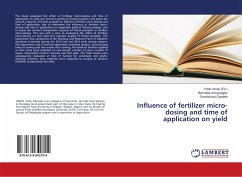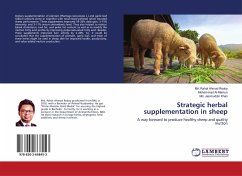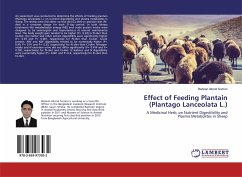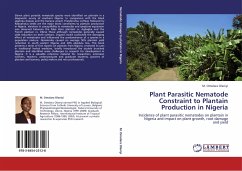This book examines the fertilizer management in plantain production in a high rainfall zone of southeastern Nigeria. Plantain serves as a staple food for both rural and urban consumers. Breeding works on plantain had targeted at reducing the severity of black sigatoka disease (which heavily reduces the bunch yield) prevalent on the local cultivars while maintaining their high yield. The hybrids ( PITA 14 , 29525 , 30456-3 and PITA 17 ) developed by International Institute of Tropical Agriculture significantly were influenced by fertilizer and time of manure application. The hybrids growth and yield responded differently to fertilizer management implying different genetic make-up. Earliest flowering and maturity, highest number of fruits, hands and heaviest bunches with highest tolerance to black sigatoka disease were associated with 29525 especially when it received poultry manure. The application of poultry manure either at planting or one month after planting was recommended for a crop cycle. However, if manure application must be delayed, it should not exceed two months after planting.
Bitte wählen Sie Ihr Anliegen aus.
Rechnungen
Retourenschein anfordern
Bestellstatus
Storno

